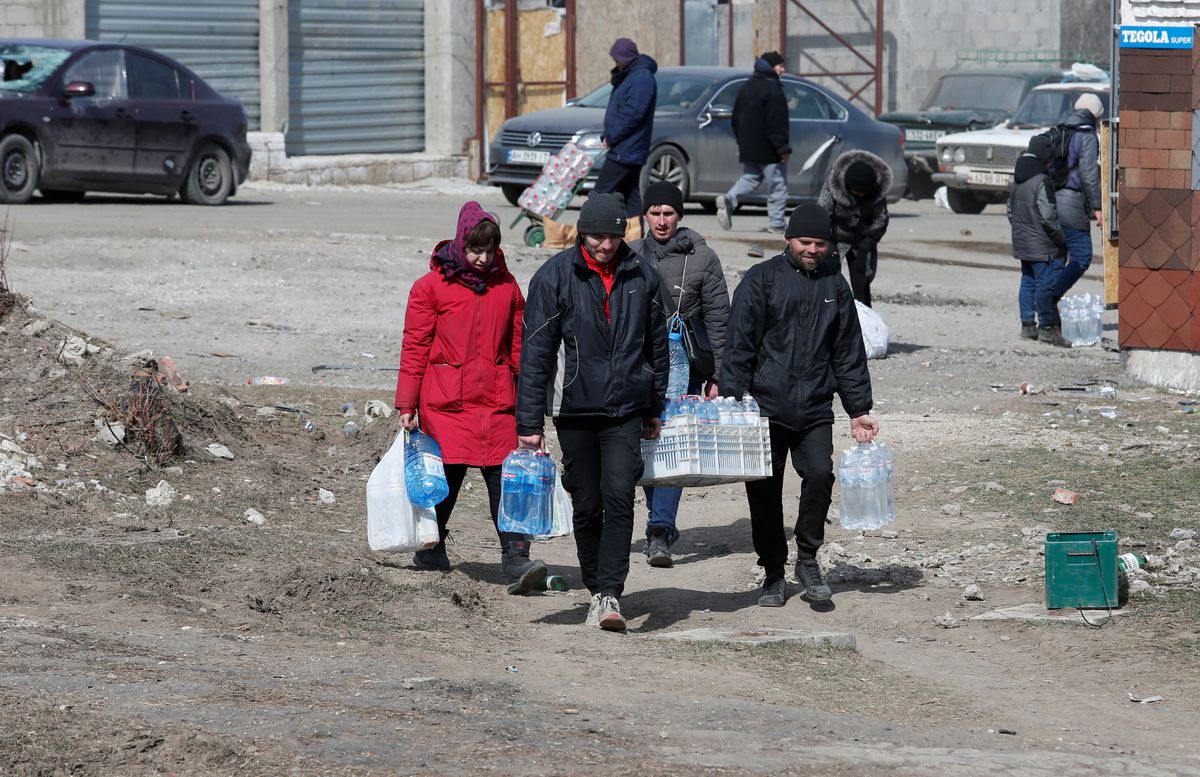MARIUPOL, Ukraine (Transatlantic Today) – Local authorities have warned that Mariupol, the Ukrainian port city that has been shelled and occupied by Russian soldiers for months, could be facing a catastrophic cholera outbreak.
According to an aide to the mayor of the besieged port city, the drinking water has been contaminated by decaying corpses and waste, raising the danger of a cholera outbreak.
On Ukrainian television, Petro Andryushchenko claimed that municipal authorities had obtained information that a neighboring Russian city across the border was mobilizing contagious disease units in event of a cholera outbreak affecting Russian soldiers in Mariupol.
Andryushchenko claimed in a separate TV appearance on Tuesday that Russian forces in control of Mariupol were basically shutting down the city and enforcing a self-imposed quarantine.
Andryushchenko said the epidemiological experts arrived after the city council of Mariupol cautioned last week that the harbor on the Azov Sea was facing an outbreak of contagious diseases. The city was practically drowning in sewage and waste, it asserted last week, because its sewage systems and central water supply were down. The hot weather has sped the rotting of thousands of bodies buried beneath the rubble, exacerbating the problem, according to the report.
On Friday, the council cited Mariupol Mayor Vadym Boychenko as stating that diarrhea and cholera could kill thousands of individuals in the ruined city.
According to the WHO, cholera is an acute disease that, if left untreated, can kill within hours. To prevent and contain the spread of the disease, sanitation and safe drinking water are essential.
Last month, the World Health Organization (WHO) issued a warning about the risk of infectious disease epidemics in Mariupol, citing data from non-governmental organizations that the city’s drinking water and sewage water were mixing, posing a serious risk of infection, including cholera.
In an email to NBC News on Tuesday, Margaret Harris, a WHO spokesman, said, “The risk of a cholera outbreak is high in Mariupol,” citing a public health review published earlier this year.
Access to Mariupol remains challenging, according to Harris, and the WHO is exploring ways to do so using its local partners.
Residents of Mariupol have been subjected to months of intense bombing as part of a Russian siege that has left them without access to water, food, medicine, or electricity, prompting worries of a humanitarian disaster. After the last enclave of Ukrainian fighters withdrew at the Azovstal steel factory last month, Russia took complete control of the city.
Many people had to be buried in mass graves or backyards due to intense bombardment. Some may have been buried in the wreckage of collapsed buildings, and their corpses have not been recovered, according to Ukrainian officials.
According to city officials, 90% of Mariupol’s infrastructure has been decimated.
Image via Reuters


























